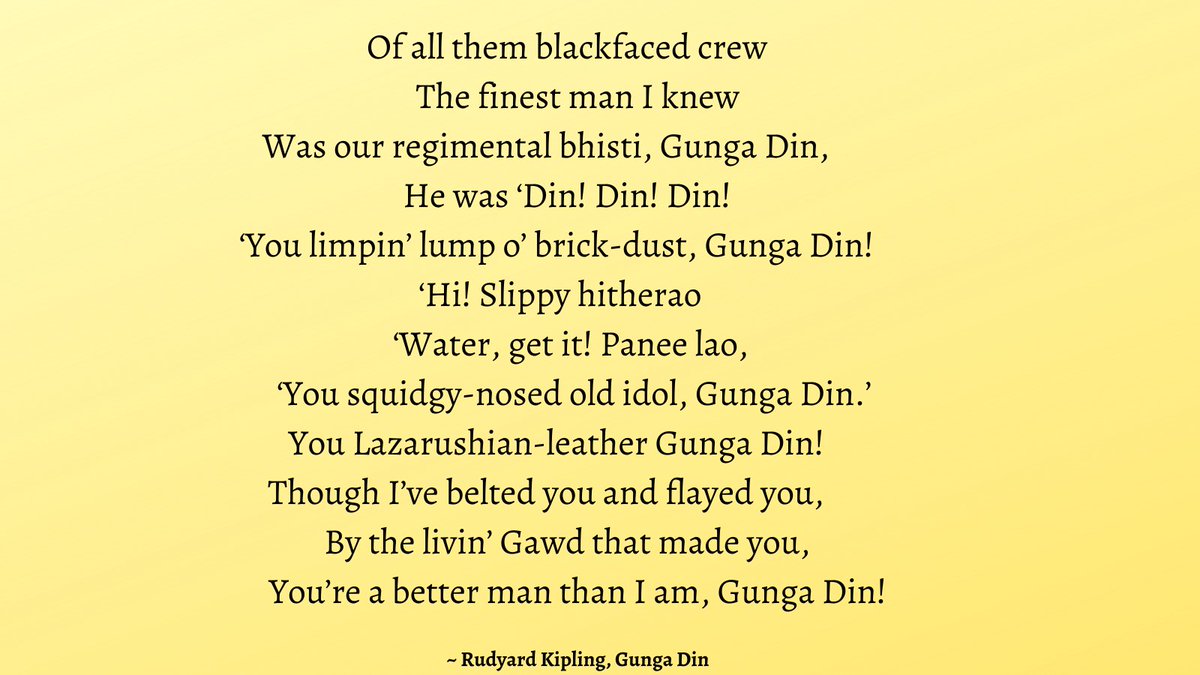Reading this fascinating book by Swagato Ganguly where he uses & #39;idolatry& #39; as a concept-metaphor to explore its deployment in the colonial representation of India, and how it came to legitimize the "civilizing missions" of colonialists.
The colonialists& #39; "fetishization" of indigenous cultural and religious practices first arose out of their cross-cultural interactions on the coast of West Africa during the 16th & 17th century. The term designates a state of mind consisting of a perverse overvaluation of things.
According to William Pietz, the concept of fetishism was a system of religious delusion which provided the central institutional axis of African religion and society, and to which, their perceived anomalies could be attributed.
Armed with & #39;arbitrary fancy& #39; and & #39;a capricious imagination& #39;, these & #39;fetish priests& #39;/colonialists degraded the indigenous cultural and religious practices to the level of things than subjects, making the taking of African slaves permissible.
As Pietz notes, in early Portuguese accounts, the terms & #39;idolatria and & #39;feiticaria& #39; are used interchangeably to characterize the & #39;superstitious& #39; practices of Black African Societies, stressing the inappropriateness of material entities as loci of spiritual and devotional activity
Just like the African fetishist& #39;s belief in the power of things made him seem thing-like himself and rendered the trade in slaves permissible, the idolators, too, in the eyes of colonialists, required the intervention of an external power to govern them wisely.
Even the & #39;& #39;Enlightenment" thoughts saw fetishism and polytheism (the concomitant of idolatry) as two "moments" or stages in a progressive evolution of the human mind. Auguste Comte formulated three "theological" states of humanity: from fetishism and polytheism to monotheism.
Hegel also positions the Christian, European civilization at the apex of his graded hierarchy of global civilizations. For him, civilizations moved from concrete universal (fetishism) to concrete particulars (polytheism), to eventually abstract universals (monotheism).
The scenes from Indiana Jones movie could be read as an allegory of "Enlightenment" thoughts where Indiana Jones releases the chained prisoners from the underground Temple of Doom into a world of broad daylights. (and its affinity to Plato& #39;s parable of the cave)
These colonial imaginaries of idolatry and how they came to influence/inspire the treatment of native servants by colonial military officers could be seen in the poem "Gunga Din" by Rudyard Kipling. And yes, Rudyard Kipling was a deeply racist, imperialist warmonger.
In History of British India, James Mill argues that the true business of the historian was & #39;not merely to display obvious outside of things& #39; but & #39;to convey just ideas about all those objects& #39; of his interests.
James Mill never visited India yet wrote a History of British India.
James Mill never visited India yet wrote a History of British India.
In colonial texts, philosophizing is privileged over observing, the processing of ideas over images and impressions, the intelligible over the sensible. Even today, this remains a basic template for conducting debate about India. #colonialhistory #decolonization
Colonial history-writing is not writing a history of India but offering a & #39;knowledge of India, approaching to completeness& #39;. Colonial history is produced in the space of difference between mythos and logos, which translates into the difference between India and Europe.
While James Mill speaks his history of India from the position of a philosopher, the Indological researches of William Jones were conducted during his tenure as a Judge. He wished to compile a digest of indigenous laws with which to govern British territories in India.
In all his writings, Jones positions himself as the true guardian and repository of the tradition. India was to be governed by Indigenous laws, but Englishmen were the most effective interpreters and arbiters of these laws.
The Asiatic Society founded by William Jones conducted research on Indological subjects to & #39;restore& #39; and & #39;recover& #39; the lost traces of monotheism among contemporary pagans. Though set up in 1784, it did not allow non-European to attend its meetings until 1892.
Jones spared no one from suspicion.
"Pure integrity is hard to be found among the Pandits and Maulavis, few of whom give opinions without a culpable bias......I therefore always make them produce original texts, and see them in their own books." ~ Letters, William Jones, 1785
"Pure integrity is hard to be found among the Pandits and Maulavis, few of whom give opinions without a culpable bias......I therefore always make them produce original texts, and see them in their own books." ~ Letters, William Jones, 1785

 Read on Twitter
Read on Twitter



